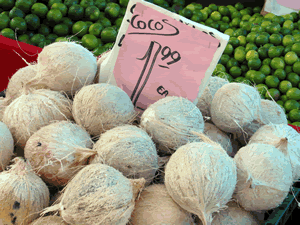Price controls
 Price controls are controls that governments (or other authorities) put in place to try to influence the outcome of a market. For example, a government may feel that a price is too high and so set a maximum price for the good or service. An example of this may be rent controls - limits on the maximum rent that a landlord can charge for the use of a property.
Price controls are controls that governments (or other authorities) put in place to try to influence the outcome of a market. For example, a government may feel that a price is too high and so set a maximum price for the good or service. An example of this may be rent controls - limits on the maximum rent that a landlord can charge for the use of a property.
Alternatively, a government may feel that the market results in a price that is too low and set a minimum price. An example of this occurs with labour markets where equilibrium wages can be very low and governments set a minimum wage. We look at this case in the section - minimum prices.
Markets can also be very unstable and this may persuade governments to try to intervene to stabilise the markets. This is particularly true with agricultural markets and we look at this situation in the section - intervention in agricultural markets.
